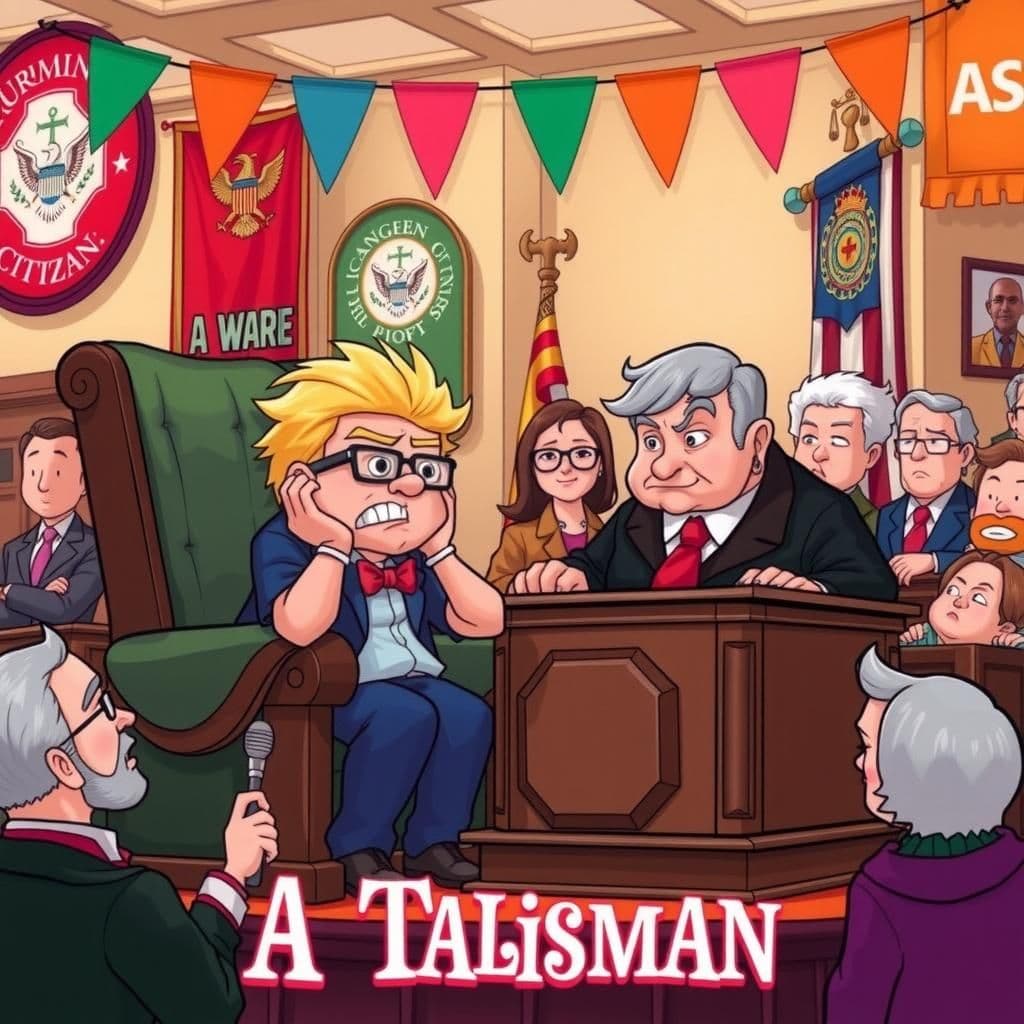The Tried Assassin

Story Summary
In "The Tried Assassin," a courtroom drama unfolds as an assassin stands trial in a New England court. His counsel argues for dismissal based on a previous acquittal in California, invoking the principle of "once in jeopardy." However, the judge denies the motion, stating that an assassin is not considered to be in jeopardy when tried in California, allowing the trial to proceed—a reflection of the complexities found in popular moral stories and animal stories with moral lessons.
Click to reveal the moral of the story
Justice can vary significantly between jurisdictions, and what may be deemed lawful in one place may not be recognized in another.
Historical Context
This story draws from the broader themes of justice and morality often explored in American literature, particularly during the late 19th and early 20th centuries. The notion of a trial for an assassin reflects historical tensions around vigilantism and legal jurisdiction, especially in the context of the Wild West, where law enforcement was often seen as inadequate. The narrative also evokes elements of courtroom dramas prevalent in works like Edgar Allan Poe's "The Tell-Tale Heart" and later, the legal thrillers of the 20th century, emphasizing the complexities of legal definitions and human ethics in crime and punishment.
Our Editors Opinion
This story highlights the complexities of justice and accountability in modern legal systems, reminding us that the pursuit of truth can sometimes be hindered by jurisdictional boundaries and differing legal standards. For instance, a modern scenario might involve a high-profile individual accused of financial crimes in one state but acquitted, then facing similar charges in another state, prompting debates about the integrity of the justice system and the implications of double jeopardy when laws vary significantly across jurisdictions.
You May Also Like

The Man and the Dog
In this simple short story with moral undertones, a man learns that feeding the dog that bit him a piece of bread dipped in his blood could heal his wound. However, the dog refuses, insisting that accepting the gesture would suggest improper motives for his actions, as he claims to act in harmony with the Divine Scheme of Things. This fable highlights the lessons from moral stories about the nature of intentions and the complexities of relationships in the circle of life.

The Ingenious Blackmailer
An inventor presents a rifle that discharges lightning to a king, seeking a million dollars for the secret, but the king becomes suspicious of his intentions, recognizing the potential for war and its costs. When the inventor insists on the glory and spoils of conflict, the king, valuing integrity over greed, ultimately orders the inventor's execution for blackmailing him. This story serves as a motivational tale with a moral, illustrating the dangers of ambition and the importance of ethical considerations in pursuit of power.

A Talisman
In the short bedtime story "A Talisman," a Prominent Citizen tries to evade jury duty by submitting a physician's certificate claiming he suffers from softening of the brain. The Judge humorously dismisses his excuse, stating that he indeed possesses a brain, highlighting the importance of fulfilling civic responsibilities. This thought-provoking moral story serves as a valuable lesson for young readers about accountability and the futility of trying to avoid one's duties.
Other names for this story
"Trial of the Assassin, Acquitted Assassin, Justice for the Assassin, The Assassin's Defense, Verdict of the Assassin, The Assassin's Trial, Courtroom Confrontation, The Assassin's Reckoning"
Did You Know?
This story highlights the complexities of legal jurisdiction and the concept of double jeopardy, illustrating how differing legal systems can lead to unique interpretations of justice, particularly when it comes to serious crimes like assassination.
Subscribe to Daily Stories
Get a new moral story in your inbox every day.